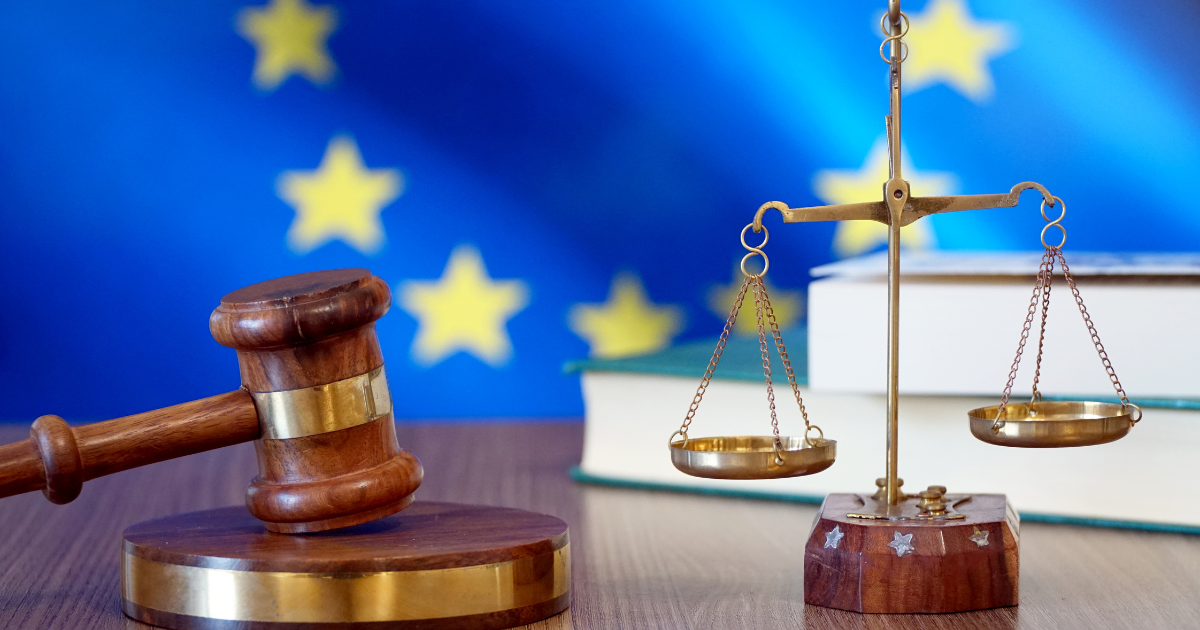The European Court of Human Rights recognized that Ukraine violated the rights of same-sex family partners

Today, June 1, the European Court of Human Rights issued a decision on the case Maymulakhin and Markiv v. Ukraine based on an application prepared and submitted back in 2014 by lawyers of the Ukrainian Helsinki Human Rights Union, who represented the interests of Nash Svit Center’s Сoordinator Andriy Maymulakhin and his family partner Andriy Markiv . The case concerned the violation of their rights to family life due to the impossibility of registering their relationship and obtaining the rights of a family member guaranteed by Ukrainian legislation. The text of the decision is available at https://hudoc.echr.coe.int/eng?i=001-224984
The panel, consisting of seven ECtHR judges, unanimously decided that Ukraine violated the rights of the applicants and, as compensation for moral damage, awarded each of them €5,000 as well as reimbursement of the costs of the lawyers’ work. Ukrainian judge Mykola Gnatovskyy also voted for it (according to the ECtHR regulations, a judge from the defendant state must be present at the first hearing of the case). Unlike previous similar cases against Italy, Russia, and Romania, no judge added a dissenting opinion to the decision.
When considering the case, the court took into account Ukraine’s application for membership in the EU, available information on petitions and actions in support of same-sex marriages/partnerships in our country, survey data on the attitude of Ukrainian society to these issues, recommendations of international organizations in this regard. The court’s conclusions were also based on the general analysis of the situation with the recognition of same-sex unions in the Council of Europe member states, carried out by the Grand Chamber of the ECtHR in the case Fedotova and Others v. Russia.
In contrast to the recent decision in the similar case of Buhuceanu and Others v. Romania, the court agreed to consider the violation of Article 8 (right to respect for private and family life) in conjunction with Article 14 (prohibition of discrimination) — thus, the ECtHR directly pointed to the discriminatory attitude of the Ukrainian state to LGBT people in the implementation of their right to family life.
In its decision, the court noted that the Ukrainian government in fact recognized that the applicants were deprived of any opportunity to regulate fundamental aspects of their family life, with the exception of certain property issues, and even those only as private individuals within the framework of civil law. The court has previously ruled that such private contractual agreements do not provide the recognition and necessary protection to a couple, given that they are limited in scope and do not regulate mutual rights and obligations between partners in a stable and committed relationship. The court also takes note of the absence of any possibility for the applicants to rely on the existence of their relationship in dealings with the state authorities.
Both parties of the process did not deny that the only reason for the state’s discriminatory treatment of family partners is their sexual orientation. The court noted that the Ukrainian government did not provide any arguments, let alone convincing and valid reasons, as a justification for the contested difference in the state’s treatment of opposite -sex and same-sex partners.
The ECtHR welcomed the intentions of the Ukrainian government to introduce a registered civil partnership, but noted that good intentions are not equal to real deeds, and the Ukrainian authorities have already failed to implement the corresponding clause of the Human Rights Action Plan, which was supposed to be implemented in 2019. The court specifically noted that the government then abandoned its intention to introduce a law on registered civil partnerships for same-sex couples, citing numerous petitions from local authorities, religious organizations and NGOs to “protect traditional family values.” According to the ECtHR, “there is no basis for considering that affording legal recognition and protection to same-sex couples in a stable and committed relationship could in itself harm families constituted in the traditional way or compromise their future or integrity. Indeed, the recognition of same-sex couples does not in any way prevent different-sex couples from marrying or founding a family corresponding to their conception of that term. […] In other words, the broadly worded aim of the protection of the traditional family cannot in itself be accepted as a valid public-interest ground justifying the denial of any legal recognition and protection for same-sex couples.”
Andriy Maymulakhin and Andriy Markiv have been living together for thirteen years. Last March, after the start of a full-scale Russian invasion, Andriy Markiv voluntarily joined the National Guard of Ukraine. A year later, due to a myocardial infarction, he had to leave the military service. Both Andriys decided to transfer the awarded money to the needs of the Armed Forces of Ukraine.
The ECtHR cannot oblige the respondent states to adopt the laws necessary to stop the violation of human rights — it only states the existence of relevant legal problems. However, the Law of Ukraine “On the implementation of judgments and application of the practice of the European Court of Human Rights” provides that the state must take measures of a general nature, including amendments to the current legislation and the practice of its application, “in order to ensure the state’s compliance with the provisions of the Convention, the violation of which is established by the Decision, to ensure the elimination of systemic deficiencies which are the basis of the violation identified by the Court, as well as to eliminate the basis for submitting to the Court applications against Ukraine, caused by the problem that was already the subject of consideration in the Court.”
Now this is the task of the Verkhovna Rada of Ukraine. Without the adoption of a law on civil partnerships or same-sex marriage, Ukraine will remain a violator of the European Convention on Human Rights that will undoubtedly have an extremely negative impact on the European integration process of our country, not to mention its obvious disgraceful attitude towards its own citizens and defenders.


